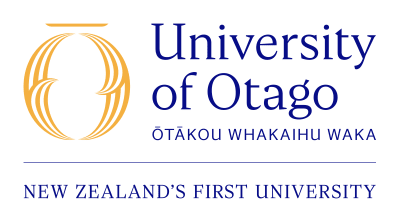
Master of Arts (Coursework) (MA(Coursework)) in Education
Dunedin, New Zealand
DURATION
LANGUAGES
English
PACE
Full time
APPLICATION DEADLINE
Request application deadline
EARLIEST START DATE
Request earliest startdate
TUITION FEES
Request tuition fees

STUDY FORMAT
On-Campus
Introduction
Master of Arts (Coursework) (MA(Coursework)) in Education
The Master of Arts (Coursework) program is designed to give students the skills sought-after by employers around the globe, with a balance of specific subject knowledge plus broad-based transferable skills – such as oral and written communication, and analytical skills.
The degree is also an possible qualification for the Doctor of Philosophy (PhD).
The MA(Coursework) normally requires either 12 months or three semesters of full-time, or equivalent part-time, study and entails completion of papers and a dissertation.
The dissertation is a major piece of supervised research of up to 20,000 words.
The primary aim of the MA(Coursework) is to provide candidates with a grounding in their chosen subject area within a wider disciplinary frame. The degree cultivates the skills needed to identify a significant topic, design and implement a significant piece of research, and present the findings in a form acceptable to an expert readership.
Why study education?
We are involved with education throughout our lives. Education papers investigate how education changes lives and how learning happens, and they identify and address patterns of success and failure in education.
Admissions
Scholarships and Funding
Several scholarship options are available. Please check the university website for more information.
Curriculum
- The degree may be awarded in any of the subjects listed in the MA(Coursework) Schedule. With the approval of the Pro-Vice-Chancellor (Humanities) the degree may be awarded in a subject not listed in the MA(Coursework) Schedule.
- The program of study shall be as prescribed for the subject concerned in Part 2 of the MA(Coursework) Schedule and shall in each case consist of a research dissertation or studio project (60 points), two 500-level HUMS papers (30 points each) from HUMS 501-503, and further papers worth 60 points at 400- or 500-level for the subject concerned, to a total value of 180 points.
- With the permission of the Dean, Director, Head of School, or Head of program concerned, a candidate may substitute for one required paper a paper of another subject at the same level.
- A candidate shall, before commencing the research dissertation or studio option, secure the approval of the Dean, Director, Head of the School or Head of program concerned for the topic, the supervisor(s), and the proposed course of the investigation.
- A candidate may not present a research dissertation or studio project which has previously been accepted for another degree.
Subject areas
The degree may be awarded in any of the following subjects:
- Anthropology
- Buddhist Studies
- Childhood and Youth Studies (not available in 2020/21)
- Chinese
- Classics
- Communication Studies
- Education
- English
- Film and Media Studies
- French
- Gender Studies
- Geography
- German
- History
- Indigenous Development / He Kura Matanui
- Japanese
- Linguistics
- Māori Studies
- Music
- Philosophy
- Philosophy, Politics and Economics
- Religious Studies
- Sociology
- Spanish
- Theatre Studies
Program Outcome
Level of Award of the Degree
The degree may be awarded with distinction or with credit.
Program Tuition Fee
Career Opportunities
Students with a major in Education can apply for a diverse range of jobs. Education can be an especially useful background for careers in research, policy analysis, social work, the counselling professions and many areas of public service.
Educational processes are important in almost all settings and Education graduates can have a valuable role in most organisations.
Program delivery
Application details
Applicants must apply online. They should also attach all the necessary supporting documents which includes scanned copies of their previous official academic transcripts (awards gained, marks, grades) with their application, and provide proof of their identity: this is usually achieved by providing a certified copy of the personal details page of their passport or a birth certificate (in English). Applicants must also submit a detailed research proposal that shows they are familiar with current literature surrounding their topic; an up-to date curriculum vitae; and name of the academic staff member with whom they have been in contact; and with an approximate start date. They may also be required to submit an Educational Credential Evaluators report (ECE). As soon as applicants have completed their online application, their proof of identity document must be posted to International Office, University of Otago, PO Box 56, Dunedin 9054, New Zealand. International student applications for semester 1/summer school study close: Oct-31; Semester 2 study close: Apr-30.
